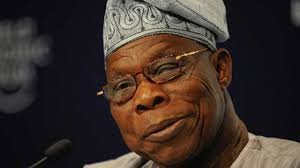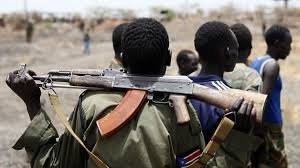Frontline Civil Society Organisation (CSO), the Resource Centre for Human Rights&Civic Education (CHRICED) has called on the Federal Government’s fact finding panel, which investigated strange deaths in Kano State to lay the foundationneeded to prevent such mass deaths in the future. The organisation gave the charge in a public statement signed by its Executive Director; Comrade Dr. Zikirullahi M. Ibrahim. The CHRICED Director called on the panel to let all stakeholders know the hard truth about their failings and limitations. The panel was therefore urged to move beyond presenting data and statistics of the deaths, just as the importance of getting all stakeholders to come to terms with the root causes of the deathswas stressed.
He said “While it is good that the report got to the bottom of the issue, and confirmed that 587 of those deaths were caused by COVID-19, it is more important to understand why such a huge number of citizens lost their lives without a robust, efficient and effective response from the healthcare system. For us therefore, it is not enough to provide the data and statistics about those who died; the panel must take a step further to make public the underlying factors, which made it impossible for those precious lives to be saved.”
Subsequently, the CHRICED helmsman expressed the view that many people in Kano, just like other parts of Nigeria have continued to mourn the demise of their loved ones, many of whom were bread winners. The group was therefore of the opinion that is not enough to merely acknowledge that the victims died of COVID-19. “It is very important to understand the failings and inadequacies of the health system, which made it impossible for those lives to be saved.
“Such a comprehensive interrogation of those realities would then help both government and the governed to pick up valuable lessons. It is our considered view that if such important issues are not understood, lessons learnt and adjustments made, this same kind of tragedy would merely repeat itself in the case of another pandemic,” Zikirullahi said.
On what exactly its wants government to do, CHRICED called for a comprehensive engagement, which would provide the basis to answer key questions about failures in the health and governance systems, which became the major factors leading to the death of so many citizens. Some of the questions the organization demanded answers to include: “what were the weaknesses or limitations of the epidemic or pandemic response system, which made the environment fertile for the COVID virus to wreck such havoc, and leave such a trail of deaths? In the face of collapse of testing in Kano State in the early days of the pandemic, what future plans should be made for rapid testing and contact tracing to deal with the threats posed by viral outbreaks or other public health emergencies? In terms of public communication, education, and enlightenment to contain disease outbreaks, to what extent can sub-national authorities learn from their failings during COVID-19, and therefore be on top of the game in the case of future crisis.”
.The human rights organization also called for a review of systems to help both government and civil society come to terms with the reasons why many distressed citizens who made calls to the health institutions in the state never got prompt attention and therefore ended up losing their lives.
“We believe that the aforementioned and many other important questions need to be answered, not just theoretically, but practically for both government and citizens to have a clear way forward after the COVID-19 crisis. In our view, it would amount to double tragedy to gloss over the mass deaths in Kano without documenting and understanding where things went wrong.
“It will also be completely unacceptable to citizens, if there is no effective, participatory and sustainable response to prevent this kind of mass death in the future. While extending our condolences to all families who lost their loved ones, we call on government at the federal, state and local government levels to work with citizens to understand the root causes of why and how the system failed to prevent or minimise the avoidable loss of so many lives. The only way we can honour those who have passed on is to work to ensure this kind of tragedy never occurs again,” he said.


















